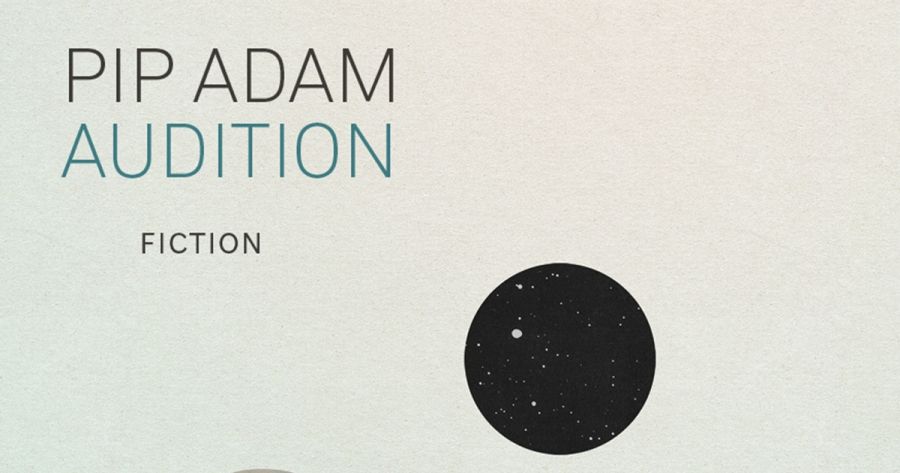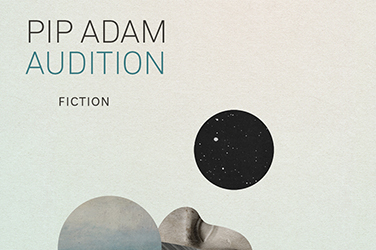
- Free Article: No
- Contents Category: Fiction
- Review Article: Yes
- Article Title: Forms of power
- Article Subtitle: A brilliant rendering of traumatic memory
- Online Only: No
- Custom Highlight Text:
Myths about space travel have always been uncomfortably tangled with incarceration and exile. Author Manu Saadia has described the private plans of the current crop of hubristic billionaires as ‘carceral fantasies’. Despite science fiction’s recent utopian turn, there is no reason to believe that space colonisation will be anything but a repeat of the earthly version’s violent history. Giants, too, have a long mythology and once held a significant place in literature, from Atlas to Swift and Wilde; both burdensome and burden-carrying, they often have an outcast sadness. Pip Adam’s fifth book, Audition, brings these myths together.
- Featured Image (400px * 250px):

- Alt Tag (Featured Image): Jennifer Mills reviews 'Audition' by Pip Adam
- Book 1 Title: Audition
- Book 1 Biblio: Giramondo, $29.95 pb, 224 pp
- Book 1 Cover Small (400 x 600):

- Book 1 Cover (800 x 1200):

‘This book is about the abolition of prisons,’ Adam states in the acknowledgments. Having worked in prisons in Aotearoa for years, she has a clear-eyed understanding of their complex psychological effects. Scattered through the novel are references to real-world events, from the Black Lives Matter movement’s attention to breathlessness to Syrian prisoners’ experiences of torture. But this book is about more than prisons.
Pip Adam has a short story writer’s playful disregard for realism’s pretences. Her work is daring, clever, and imaginatively dazzling, but none of those back-cover words seem to fit; they are too shallow, too performative, for Adam’s project, which is really – and here, perhaps, most pronouncedly – about justice.
A political writer, Adam is more interested in human-system dynamics than in human-human ones: class, capital, education, technology, and labour. But that description seems reductive. Her books are profoundly strange and profoundly realistic, about people surviving in institutions and hostile structures. Symbolism matters, but so does humanity; her characters always seem to develop some autonomy. The ship is a prison, but this is just one of the many less visible structures that contain and confine the giants’ lives. The excessive body is both literal and figurative, a way to talk about power, shame, responsibility, and institutionalisation.
Audition is structured in much the same way as the ship: three overlapping parts packed into a confined space, an uncomfortable compression. The set-up feels allegorical; at first I wondered if this might be Adam’s way of distancing herself from the trickier ethics of writing about marginalised people, but that question evaporated in the second part, when Adam turns to ‘the classroom’ and what happened to the giants before they were sent away.
Adam’s prose is stark and direct; though peppered with pop-culture references and memes, it has an admirable steadiness. With less conceptual weight behind it, this style might come across as vapid, but in Adam’s hands it feels inevitable and necessary, the best tools to handle the heaviest material.
Sometimes this directness is devastating: ‘they didn’t need to tell them all the way because they had told them enough times that they told themselves now.’ Sometimes it is bitterly funny: ‘She was making him uncomfortable with her death drive. It was seeping out of her and if she died he’d have more forms to fill in.’ The straightforwardness and humour brush distractions away. This isn’t a display of skill or sensitivity; this is a writer with purpose, getting on with her work.
There are many forms of power in this book, including the power of narrative, the construction of selfhood in story. As the giants piece each other together from clues and fragments, the stories they have been handed are revealed as fictions. The past ‘looks like a collage’. ‘What else have we forgotten?’ they ask. Among other things, Audition is a brilliant formal rendering of traumatic memory.
There is complicity here, even acceptance; the giants are ‘pliant’. But Audition also chronicles forms of resistance, from the smallest allowable transgression to the last available escape. Hope is mentioned, equivocally: ‘hope is the problem’, a mechanism of surrender. Fortunately, Adam has something more transcendent up her sleeve. She dares to cut a hole in the universe, to make a way through. In the third part of Audition, exile turns on its axis, taking on more liberating meanings. As in The New Animals, the body returns to the fore, and there is room for spirit and pleasure, mystery and satiety.
Adam writes for the dystopia we live in: the one where the death of a billionaire in a submersible matters while those of the hundreds of asylum seekers who drowned in the same week don’t; the one where children are kept in solitary confinement day after day; the one in which all our systems seem designed to fail those who need them the most.
Adam’s genius is to balance the real and the unreal, holding them side by side so that their reflections glitter and shift. Reading her work can be like falling through layers of glass, wounding in ways you don’t fully understand until afterwards. When you are back on solid ground, it feels less solid than it was. The best fiction makes reality mutable, makes the unthinkable possible. Adam has that power, and Audition brings that gift.


Comments powered by CComment